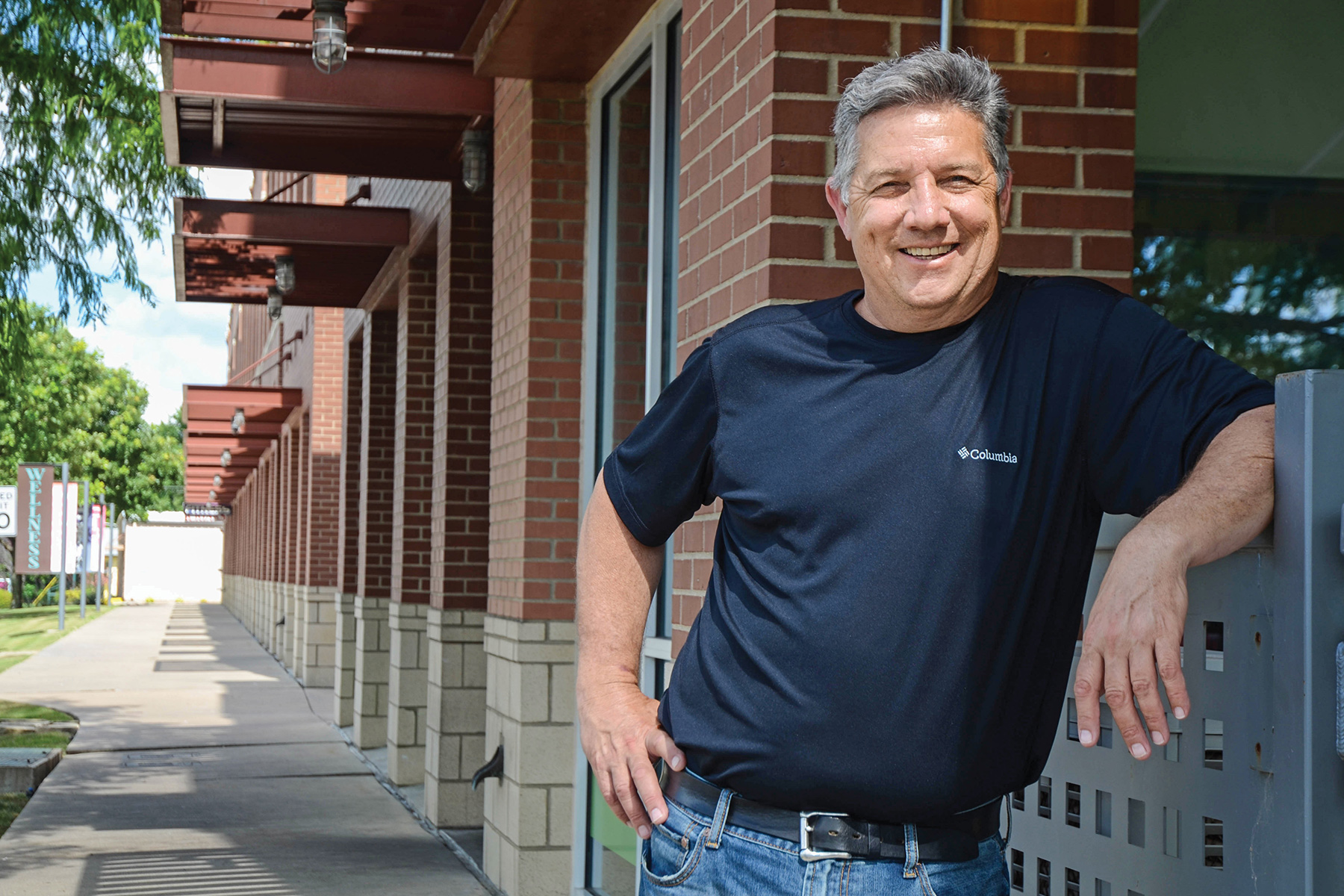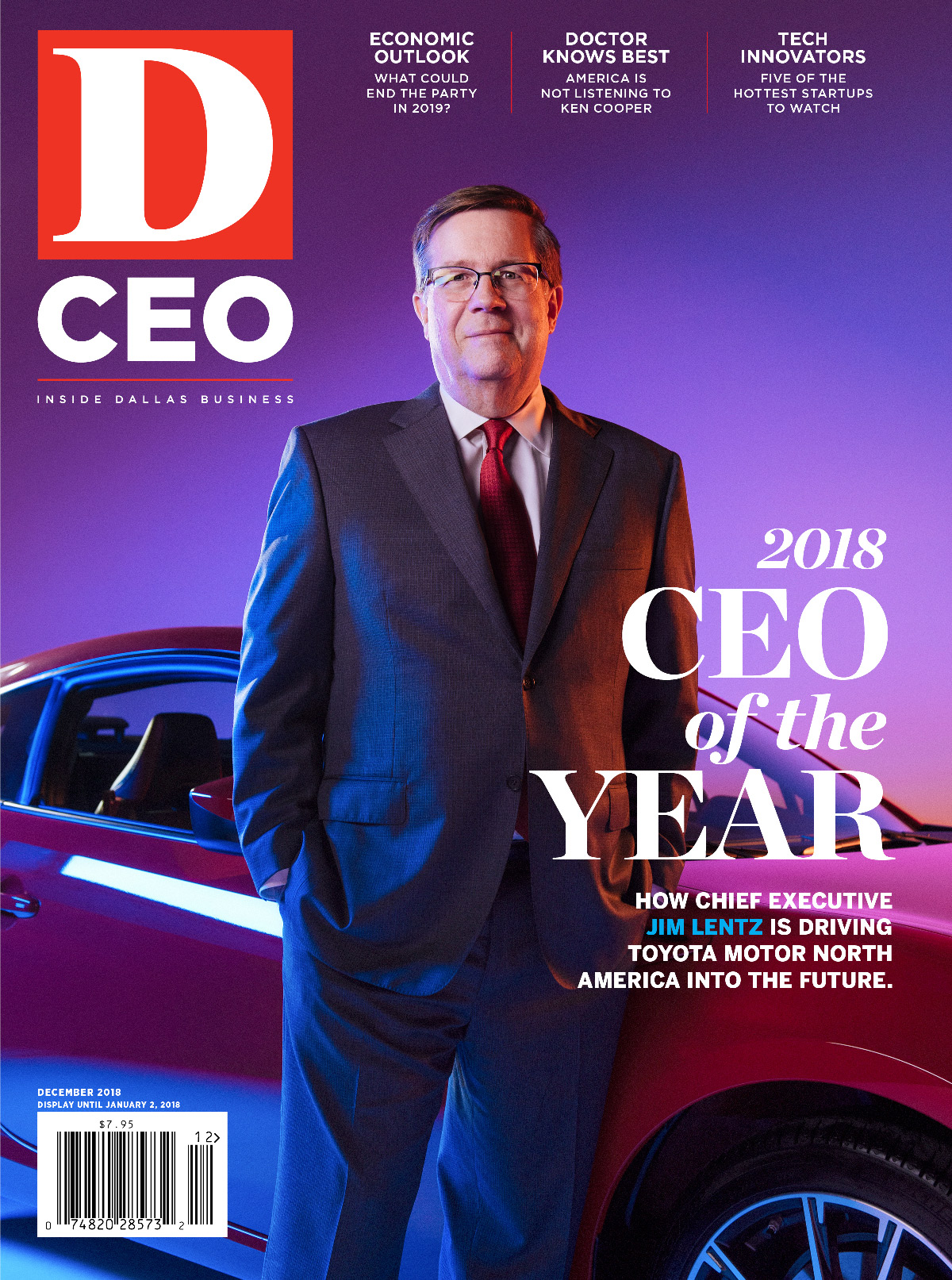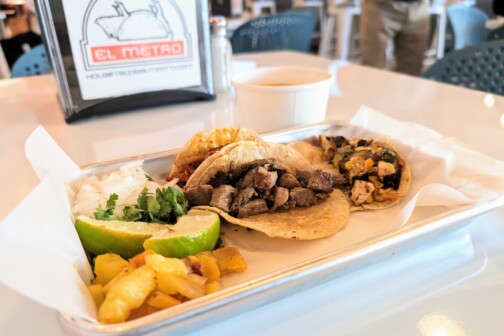Monte Anderson, founder and CEO of Options Real Estate, a champion for South Dallas, and a fervent small-business booster, is a busy man. He and his company are responsible for southern-sector projects like the rehabilitation of the legendary Texas Theatre in Bishop Arts, the restoration of the Belmont Hotel, and Thorntree Country Club, which have brought vigor back to an underserved part of the region.
Although his primary focus is the prosperity and health of South Dallas, Anderson’s heart beats for towns and neighborhoods across the nation that are underserved, impoverished, and forgotten, and he feels he has the solution for them.
When I track him down by phone on a brisk Tuesday morning in Dallas, he’s juggling multiple conversations and ordering coffee in South Bend, Ind., where he’s teaching entrepreneurs how to own both their business and their place of business. Anderson has been taking his gospel on the road, teaching business owners how to navigate the real estate world and create what he refers to as “the missing middle.”
By this he means the one- to three-story buildings that once made up the middle of most blocks, housing small businesses and residential units.
Anderson began his career by developing in places where few others dared venture. “I started off trying to sell real estate to big developers in South Dallas, tried to get them to come down, and they wouldn’t come,” he says. “Finally, one day, I figured out that they’re never going to come.”
The answer, Anderson decided, was for people in South Dallas to rebuild their communities for themselves. That by-the-bootstraps approach has been his modus operandi ever since.
In his mind, local-powered development is the key to neighborhood revitalization. Anderson believes poor communities need more local stakeholders, not more handouts. “We have too many nonprofits,” he says. “We need to have more for-profit, small builder-developers.”
Three years ago, he co-founded the Incremental Development Alliance, a teaching organization focused on purveying “gentlefication” through local ownership. He works with other like-minded colleagues he met through the Congress for New Urbanism. In 2015, the organization held its first small-development boot camp in Duncanville. More than 100 people attended.
“There was a lot of interest from local people who wanted to see something better built than the next shopping center or the next big, 200-unit apartment complex,” Anderson says. “They wanted to see the town built like we used to build them, where the butcher, the baker, and the candlestick maker had two or three units connected to their business. They were built in the downtown, they contributed to the downtown, and that’s where the affordable housing and the workforce housing could go, and they would own their buildings, too.”
Anderson believes increasing local ownership can help reverse the erosion of the middle class. “We believe they don’t have net worth because they don’t own real estate for their businesses,” he says. “Most of the people you know who own businesses probably rent their space.”
Putting Shovel to Dirt
IDA’s goal is to create and equip 1,000 small developers around the country. Anderson and other IDA leaders travel the country and use a three-step process to create awareness of their platform.
First, they gauge interest with a luncheon, then they invite people to a one-day workshop discussing the principles of new urbanism and small-scale development. Finally, they put on a two-day boot camp, where entrepreneurs bring ideas to the drawing board and receive the practical, insider information they need to put shovel to dirt.
Just that morning in South Bend, Anderson helped a local ice cream shop owner craft a site plan for a new addition on land he had recently acquired.
“I like to call it microsurgery,” Anderson says. “Because if I can go in and put something strategic in a place like that, even if it’s only two or three small buildings, it can have a ripple effect. And that’s what we want to create, a ripple effect that, after we’re gone, that it continues to go on.”
His most recent project, Grow DeSoto, is poised to do just that for Southern Dallas. It’s a small-business incubator based in a shopping center once anchored by an old Ace Hardware, which Anderson has owned—twice.
Frustrated with what he viewed as a lack of city support for similar small-business ownership initiatives he had tried to start in the past, Anderson was determined to get a few tenants in the derelict shopping center and flip it. But the mayor of DeSoto approached him and said he wanted Anderson to consider doing something else with the space.
What emerged from the ensuing conversations was an incubator where locals could lease space on the cheap to give their small-businesses runway for proof-of-concept, fueled by a partnership between Anderson and the city. “I knew a lot of local people who wanted to start businesses, but they were either too scared or didn’t have the money,” Anderson says. “So, we wanted to create this entry point, where with $350 a month you could start your business. And that was missing; that’s missing everywhere.”
Grow DeSoto provides a safety net for people who want to try their hand at being an entrepreneur. It eases some of the fears surrounding entrepreneurial endeavors and provides a scaffold for smart, sustainable growth. “It’s like a plant,” Anderson says. “You don’t start with a full-blown plant in the ground. You start with a seed.”
To promote this kind of local ownership, Anderson says cities need to do three things: update zoning and city codes to recognize value in small-scale development, help burgeoning business owners with financing, and mentor entrepreneurs as they pursue the ventures that will bring life to their neighborhoods.
Overwhelming Conviction
Anderson is a different breed of real estate developer, and his “gentlefication” philosophy is born of a deep belief that revitalizing Southern Dallas is his calling. He says that a long time ago, he had a spiritual experience that left him with the overwhelming conviction that he would work in South Dallas for the rest of his life.
“This revelation led him to start thinking about building his legacy and working to benefit the whole instead of making decisions solely based on financial prosperity hat commitment to place, that commitment to purpose, that commitment to something changes the universe,” Anderson says. “It changes everything. And you get tested … to see if it’s real.”
His travels to other cities have only strengthened his resolve.
“I’m in South Bend, Indiana, today, and you say, ‘Wait a minute Monte, you’re in South Bend, Indiana, what are you doing?’ I’m not doing any work here. I’m exchanging ideas that I bring back home,” he says. “My travels make me a much better local developer.”
Anderson says his efforts in South Dallas, his work in other cities, and his pursuit of gentlefication are all about leaving behind resources for future generations that will help better humanity. He sees the ocean of wealth that aging Baby Boomers are stockpiling and knows it could be put to better use. Instead of sitting on the wealth, he’d like to see that money loaned, not given, to people who are looking for ways to build up the places they love, because that creates lasting value. It creates a legacy. In the end, Anderson says, his money will do him no good.
“The only thing you take with you in this life is what you give away,” he says. “So, I plan on dying with nothing.”






